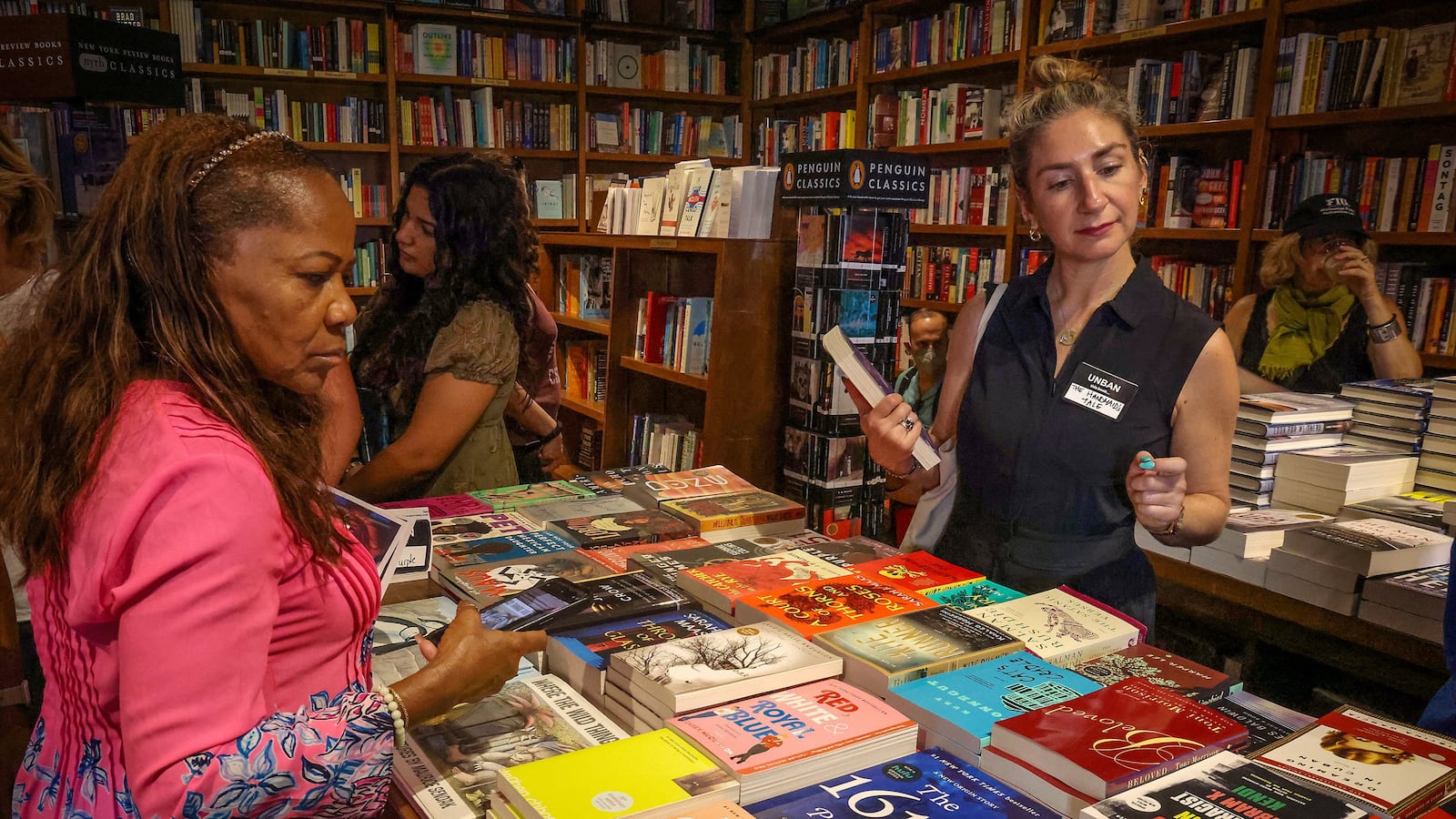“The Hate U Give.” “Aristotle and Dante Discover the Secrets of the Universe.” “Challenger Deep.” “The Poet X.” These are just some of the titles my students researched and recommended as part of a 2018 project-based learning unit I had assigned. The goal: to diversify our high school’s required reading lists. “Why don’t we have these books?” the superintendent of the district where I was teaching English at the time asked me.
The following school year, these books were integrated into the English I curriculum as choice reads for our literature circles. I find it hard to fathom such a thing happening today.

Four years later, I was teaching in another school district, this one in Norman, Oklahoma. Just days before we were set to return for the 2022-23 academic year, teachers were advised during a faculty meeting to restrict or remove student access to classroom libraries.
Such a sprint toward soft censorship was a response to the Oklahoma State Board of Education’s enforcement of House Bill 1775 of 2021, which restricts conversations around race and sex in academic spaces. Concerned about a potential accreditation downgrade for violating this law, a school site administrator suggested I cover the 500-plus books in my classroom library with butcher paper, which I did. But that was far from the end of the story.
Without the classroom library that I had spent my career curating, some of my students walked into class that first day to find stories that reflected their lives had been reclassified as contraband. So I wrote on the butcher paper covering my shelves, “Books the state doesn’t want you to read.” A protest in pixels, I also added a QR code for students to scan for information about Books Unbanned, a nationwide initiative from Brooklyn Public Library, offering students ages 13-21 free eCard access to the library’s more than 500,000 digital items.
I’ve never taught a math class, but I knew that 500,000 books > 500 books. I also knew that this act of resistance could cost me my job or even my teacher’s license. But if state leadership was going to censor classrooms, I was going to make sure my students still had ample opportunities to read, think, and decide for themselves.
Oklahoma’s HB 1775, which is facing a challenge in federal court, and similar laws from Texas to Florida to Iowa, followed the first Trump administration’s 2020 Executive Order on Combating Race and Sex Stereotyping. These state mandates are often referred to as “divisive concepts” laws. But really, they are censorship by another name. And they don’t just silence ideas; they silence people. They resist the inclusion of historically marginalized voices, such as BIPOC and LGBTQ+ perspectives, because those voices challenge the comfort of the dominant narrative.
“Most characters/authors are straight white guys, and that kind of reflects how we treat literature,” one of my students reflected back in 2018, as they were working on the reading list project.
That student said they wanted to see more diversity in the assigned reading. Unfortunately, the progress made to integrate inclusive, relevant texts into curriculums and libraries is now at risk.
Friday, August 19, 2022, was my first day of year nine as a certified English teacher in Oklahoma public schools and my second year in the Norman district. By day’s end, however, I was placed on leave and told to report to district offices first thing Monday morning. Although the district expressed hope I would return to the classroom, I chose instead to resign so that I could continue to speak out for intellectual freedom and against HB 1775. Soon, my story was making headlines.
And while in 2023 an assistant state attorney general recommended against revoking my teaching license, the Oklahoma State Board of Education still took it away the next year. That has put my livelihood and my life on hold for the foreseeable future and taken an irrevocable toll on my mental health.
Recently, at my eldest nibling’s kindergarten graduation, I was ambushed somewhere around the second chorus of Imagine Dragons’ “Believer” by a panic attack. To an outside observer, I was there in that small-town auditorium, listening to a stage full of big little voices as they belted out “Pain! You made me a believer, believer.”
However, at that moment, I could not have been further from row G, seat 1.
Suddenly and without consent, I was lost amid the voices in my head that for almost three years have relentlessly labeled me a loser, letdown, failure, and fraud — my entire being seized by a feeling akin to what I can only describe as white-knuckling an electric fence.
Until recently, I associated post-traumatic stress disorder, or PTSD, with literal soldiers scarred by the hell of war. Yet I’ve spent most of the past decade not on the battlefield, but in the classroom. I’ve learned, however, that the majority of PTSD diagnoses do not in fact stem from past military service. Apparently, standing up for students’ right to read can leave its own scars.
Despite the deep personal and professional costs, it’s impossible to convey just how little remorse I have. None at all, really. Because not every battle worth fighting is winnable. Because sometimes “Paycheck or principle?” isn’t a rhetorical question.
We are living through a near-constant deluge of crises that are designed to make meaningful teaching and learning unsustainable and undesirable — from efforts to dismantle the Department of Education to the wholesale retraction of diversity, equity, and inclusion initiatives, from book bans in PK-12 schools to ideological litmus tests imposed on American universities.
In this era of renewed threats to civil liberties coming out of the White House, the statehouse, and the courthouse, I’d challenge all teachers in the schoolhouse to ask themselves: What’s your QR code?
To teach is to take a stand. And just like teaching, taking a stand can look a lot of different ways, including:
- Recommending a story to a student that speaks to them as they are.
- Incorporating diverse voices and perspectives intentionally in lesson plans.
- Affirming students’ identities through intentional language and identity-sustaining classroom culture.
- Facilitating workshops for teachers on responding to educational gag orders and preserving access to diverse texts.
- Bringing together educators, librarians, and community members for public events defending inclusive curriculums.
- Documenting and reporting instances of censorship and/or policy overreach.
Sometimes, it can even look like resting, a radical act of resilience for the fight ahead.
As the youth scholar and artist Jasmine Lewis shared with me in a recent email exchange, “[The world today] reminds me how important it is that we continue reading, writing, and harnessing care in any/every space that we are able to.”
Against the torrent of extreme partisan interference in our public schools, it is your persistence, teachers, that forms the foundation for meaningful resistance to censorship efforts. Despite everything you’re up against, we need you for what comes next: the 2025-26 school year. There’s a lot riding on the integrity of those spines beyond books.
Summer Boismier (she/her) is an English language arts educator and doctoral student at the University of Oklahoma whose work focuses on free expression issues, culturally sustaining pedagogies, and educational equity in public schools. A nationally recognized youth free expression advocate, she is also a recipient of the Oklahoma State Department of Education’s 2019 Rising Star Award and Piedmont Public Schools’ 2018-2019 District Teacher of the Year honor. In 2024, the Oklahoma State Board of Education unanimously revoked her teaching certificate for telling her students about a public library card.



